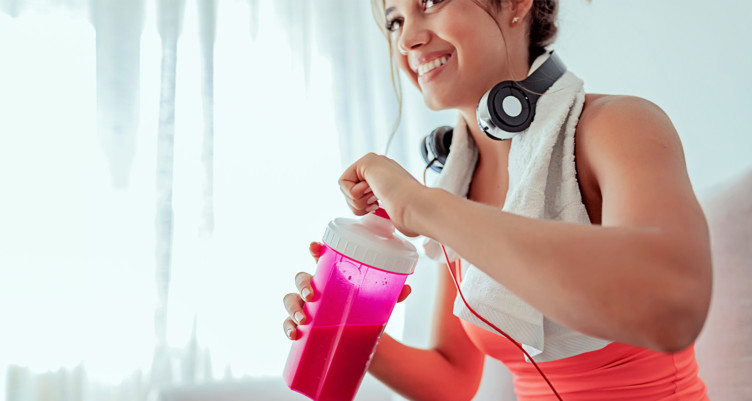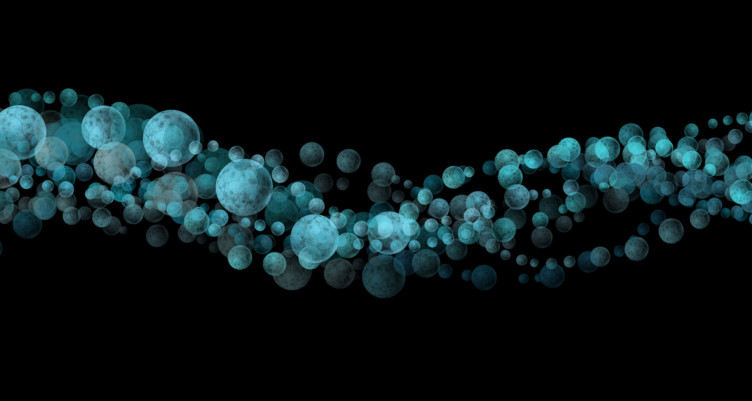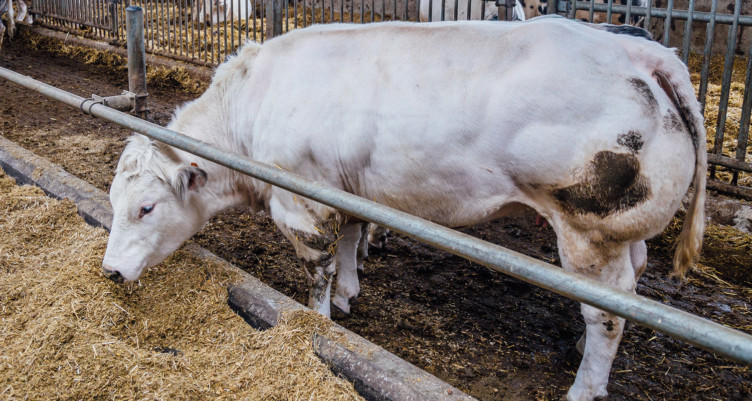What Are Peptides? How Peptides Work for Fat Burning and Recovery

- Peptides are like mini-proteins — short strings of amino acids that do a bunch of different things for you.
- Peptides are often very easy to absorb, which is valuable for supplements like collagen and creatine. Collagen peptides and creatine peptides are excellent supplements; you can read more about them below
- You can also take more experimental peptides. This article covers BPC-157, a peptide that may dramatically speed up joint and muscle healing, and follistatin, a peptide that increases muscle growth and fat loss (note: both of these compounds are classified as performance-enhancing drugs in most athletic competitions).
- Take the more experimental peptides at your own risk. You can find dosing information below.
If you’re big into working out (or you eavesdrop on conversations in the gym), you may have heard a thing or two about peptides. There are a wide variety of peptides; some, like collagen, are staples of good nutrition, while others fall comfortably on the experimental side of biohacking. Many peptides are relatively new and unknown outside the fitness community, and the more unusual ones can seem off-putting at first.
That said, it’s worthwhile to at least consider peptides, because they can have a profound impact on your physical performance. Peptides may help you build muscle and burn fat (so much so that the more powerful peptides are classed as performance-enhancing drugs). They’re also tremendously useful for helping with healing from muscle or joint injuries.
This article will cover a variety of peptides, from the common ones everyone can use to the newer, more out-there ones that you may want to experiment with at your own risk. Let’s start by talking about peptides in general.
What is a peptide?

You can think of peptides as mini-proteins. Peptides and proteins are both made up of amino acids; roughly speaking, anything under 50 amino acids is a peptide, while anything larger than 50 amino acids is a protein.[1]
Supplement companies often break proteins down into peptides so they’re easier to absorb. Collagen is a good example; your body struggles to digest collagen proteins, but will readily use collagen peptides.
You also have natural peptides in your body. Peptides often act as hormones, sending information through your blood from one tissue to another. The more experimental peptide supplements (the ones considered performance-enhancing drugs, for example) often mimic or influence the natural peptides in your body. They can boost testosterone or human growth hormone (HGH) to kickstart muscle growth, fat loss, and cartilage healing.
Here are a few different peptide supplements that can enhance your performance. They’re arranged from most common (and well-studied) to more experimental.
Collagen peptides for aging and beauty

Collagen is a protein that makes up your skin, hair, nails, bones, and connective tissue.
Your body makes collagen all the time, but as you get older, your collagen production slows down and your skin and joints start to age[2].
The three amino acids your body needs to make collagen — glycine, proline, and hydroxyproline — are rare in normal muscle meat, like chicken breast or a beef filet. The best source of these precious amino acids is dietary collagen. Unless you’re eating lots of skin and connective tissue, you could probably use more collagen in your diet. That’s where a collagen supplement comes in.
Collagen supplements give your body the raw materials it needs to make more of its own collagen, which with skin and joints, even as you age.[3][4][5]
Your body struggles to digest whole collagen protein; the best collagen supplements are hydrolyzed, meaning the collagen proteins are “predigested” into collagen peptides that are much easier for your body to absorb.
When you’re choosing a collagen supplement, make sure you get grass-fed collagen peptides from cows raised without antibiotics or synthetic hormones.
Related: How Do Collagen Supplements Work? What the Science Says
Creatine peptides for strength and muscle growth

Creatine has been a bodybuilding staple for decades, probably because it really works for increasing strength and building more muscle.
If you’ve ever done a heavy lift or an intense sprint, you’ve probably felt the moment (after 8-10 seconds) where your power drops off and things get significantly more difficult. That’s your anaerobic threshold — the moment that your muscles use up all their stored ATP (energy).
Creatine increases the amount of ATP your muscles can store and recharges your stores while your muscles rest[6]. Taking creatine can buy you a few precious extra seconds of explosive power before you slow down and switch over to burning oxygen for fuel. In other words, creatine can help you get a couple extra reps in a heavy lifting set or sprint for longer in an HIIT workout.
Creatine also promotes protein synthesis, which can help you build more muscle. And if that’s not enough for you, creatine is a nootropic as well — meaning it may help with memory and mental energy.[7].
Normally, creatine requires a loading phase where you take lots of creatine for a week, then drop to a maintenance dose. The loading week for creatine can be rough: headaches, stomachaches, dehydration, and nausea are all common. The side effects aren’t serious — it’s just your body adjusting, and there are no common long-term downsides to creatine — but the first week is annoying nonetheless. Creatine peptides can help. They’re more bioavailable, so you may be able to shorten your loading phase to a couple days and possibly avoid some of the irritating side effects.
Here’s a guide to taking creatine. If you go for creatine peptides, you can shorten the loading phase to 2-3 days.
BPC-157 for rapid recovery from injuries

First things first: if you’re a competitive athlete, BPC-157 is likely classed as a performance-enhancing drug, and you could get disqualified if you take it.
BPC stands for Body Protecting Compound, and it lives up to its name. It’s a newer peptide without much human research, but the studies using BPC on rats are nothing short of miraculous. So are the anecdotal reports from people who use BPC for healing soft tissue injuries. Take a look at some of the research:
- BPC-157 rapidly heals ruptured Achilles tendons in rats[8].
- It also heals torn knee ligaments (in this case the MCL) in rats[9].
- BPC-157 reattached torn Achilles tendons to bone (in rats) so quickly and effectively that researchers suggested looking at it as an alternative to reconstructive surgery[10].
- Rapidly repaired leaky gut lining[11] and reversed gut damage from inflammatory bowel syndrome (IBS) in rats[12].
There were no discernible side effects in any of these studies, though it’s worth noting that they’re all in rats. That said, a growing number of anecdotal reports suggest that BPC-157 does in humans what it does in rodents: it helps you heal like Wolverine.
You can either take BPC-157 orally or inject it locally into damaged muscles, joints, etc. If you’re going to inject it, make sure you know what you’re doing, or go to someone who does. And no matter how you take BPC-157, be aware that it’s still new and fairly experimental. Use it at your own risk.
Follistatin for muscle gain and fat loss

Have you ever seen a photo of Belgian Blue cattle? They’re the hyper-muscular bulls that look like they’ve been eating steroids since birth. Here’s one:

Belgian Blues have a genetic mutation that suppresses myostatin, a compound that prevents muscle growth. With abnormally low myostatin levels, these cattle put on muscle effortlessly.
Follistatin is a peptide that mimics what Belgian Blues have naturally. It suppresses myostatin, which leads to impressive muscle growth.
You make follistatin naturally, but as a supplement it’s very new. There’s a single study on healthy people who took follistatin for eight weeks in conjunction with resistance training. It tripled their muscle growth[13].
There’s also a fair amount of animal research. Giving rodents follistatin increased their muscle gain and made them lose fat, even when they ate a poor diet[14]. Follistatin caused increased strength and muscle growth in primates, too[15].
There’s even an interesting case study of a child born with the same genetic mutation the muscular bulls have (the condition follistatin mimics). The child became exceptionally muscular[16].
Based on a single human study and a host of animal studies, it seems like follistatin could dramatically support your results in the gym. The human study gave people either 10 grams or 30 grams of follistatin orally every day, and both groups showed the same muscle growth. So if you’re going to take follistatin orally, 10 grams seems to be a good dose.
Most people inject follistatin, and while there’s no official dose, the typical range seems to be 100-300 micrograms, injected into specific areas you want to boost muscle and lose fat.
Like with BPC-157, follistatin is very much experimental. Take it at your own risk and be safe with your injections.
And if these new peptides are a little too out there for you, there are plenty of well-studied workout supplements that work. Give them a try to see faster results in the gym.
Sign up for early access to sales, product launches, the latest Bulletproof news and more!



